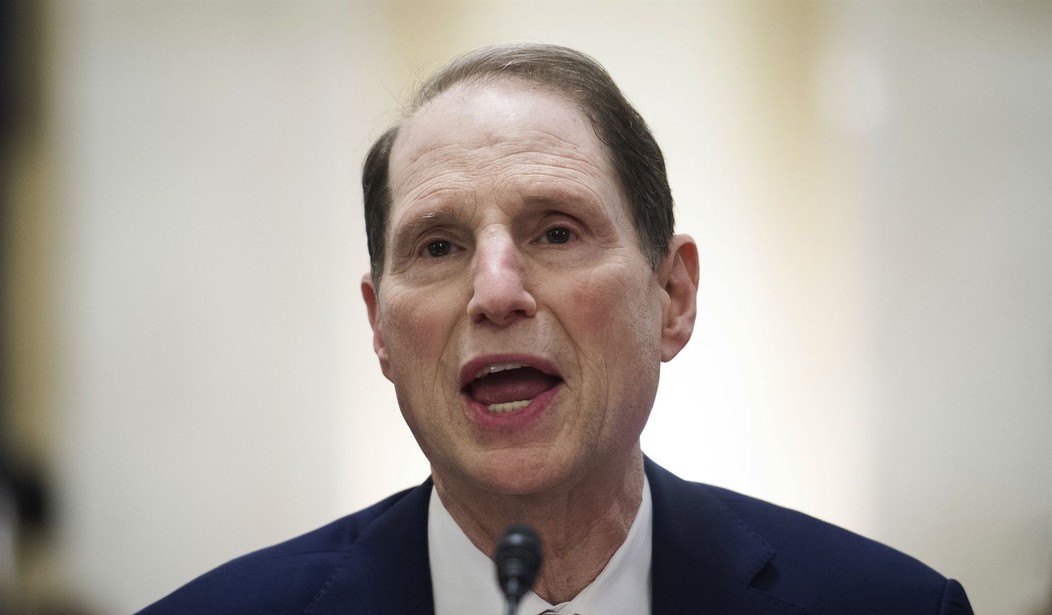The Senate Finance Committee is reportedly considering a change to Medicare’s Part D prescription drug benefit that would undermine one of the few entitlement-program success stories.
In an effort to reduce what seniors pay at the pharmacy, the committee’s top Democrat, Sen. Ron Wyden of Oregon, has proposed fining drug companies if the price of their drugs rises faster than the rate of inflation. The committee’s chairman, Sen. Chuck Grassley (R-Iowa), hasn’t yet rejected the plan.
Wyden’s proposal is a thinly veiled effort to impose government price controls through the back door. If it takes off, it would impede the competition that makes Part D work and could even stifle future drug development.
Medicare Part D—which began in 2006 and provides prescription drug coverage to 43 million of the 60 million people covered under Medicare—is unique among entitlement programs.
What has made Part D so successful is private sector competition.
Instead of the government paying directly for prescription drugs, private insurers design and administer Part D plans and they compete for beneficiaries, in part by negotiating discounts with drug companies.
The program’s actual cost over its first 10 years was 45 percent less than originally projected, according to the Congressional Budget Office.
And those savings are reflected in lower monthly Part D premiums for seniors: $51.28 for the base Part D premium in 2019 as compared to $92.30 in 2006, according to the Centers for Medicare and Medicaid Services.
Recommended
Imagine, a government entitlement program that actually costs less than anticipated.
So why is Wyden targeting Part D? Because Washington lives by a convoluted moto: If it ain’t broke, then break it!
The proposed “inflation penalty” would essentially break Part D’s ability to provide access to virtually all generic and brand name drugs. Worse yet, it would ensure that many drugs in the development process would never make it.
By imposing back-door price controls the government is essentially locking in today’s prices indefinitely.
That’s bad news for seniors. Part D insurers currently negotiate some of the biggest discounts in the private sector. Without the incentive to negotiate, seniors could wind up paying more for drugs than they currently do.
But that’s not all. Like all price controls, the inflation penalty would undermine innovation.
Developing a new drug is risky and expensive. It costs about $1.7 billion out of pocket to bring a new drug to market. And only a handful of drugs actually make it through the clinical trials.
Despite these terrible odds, drug companies continue to pour billions of dollars into research projects with the hope that a single, successful drug will help them offset the cost of their failures.
Price controls eliminate this incentive. If the government sets artificially low prices for drugs, companies would have little hope of recouping their investments. As a result, they’ll simply stop pouring money into research and development, especially with respect to the most intractable diseases such as cancer and Alzheimer’s.
We’ve already seen this happen in Europe. According to a study from the Milken Institute, in the 1970s, about 70 percent of new medicines came from the continent, compared to 30 percent from the U.S. But over the next few decades European nations began implementing price controls. By 2010, the U.S. was producing well more than half of the new drugs compared to Europe.
Lowering the cost of prescription drugs for America’s seniors is a noble goal. But there are ways to do this without depriving patients of future cures. Let’s hope the Senate Finance Committee chooses a different path.
Merrill Matthews is a resident scholar with the Institute for Policy Innovation in Dallas, Texas. Follow him on Twitter @MerrillMatthews.

























Join the conversation as a VIP Member